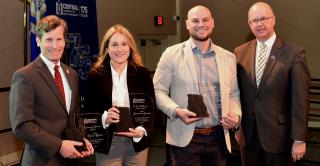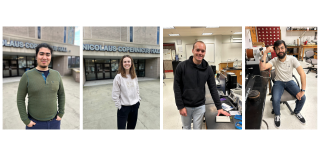
Background
The United States has export control laws in order to manage or prohibit the export of certain technology and technical data to foreign countries for national security and trade purposes. In some cases, a license from the federal government is required before certain technology and technical data can be released to foreign nationals, including foreign national employees working in the United States. Such an information release is a "deemed export." These technology and technical data are defined in the Export Administration Regulations (EAR) and the International Traffic in Arms Regulations (ITAR).
The United States Citizenship and Immigration Services (USCIS) made recent changes to its Petition for a Nonimmigrant Worker, Form I-129, and these changes mean that, in hiring a foreign person who is seeking either a H-1B, H-1B1, LO1, or O-1A visa, CCSU must attest on the Form I-129 that either (1) a license is not required from the federal government to release export controlled technology or technical data to that person; or (2) that a license is required and that CCSU will prevent that person from having access to export controlled technology or technical data until and unless it obtains the required license.
Action Required
To comply with this requirement, the Deans, in consultation with the Chairs of the departments that have hired foreign persons, must complete this certification for each foreign person hired. The Center for International Education cannot file an I-129 petition for a visa for a foreign hire until it has received this completed and signed form. The Dean submits the completed form to the Provost and the Vice President for Academic Affairs.
Deemed Export Exclusions
Much of the work done at CCSU does not require a deemed export license because the work falls under one of two exemptions to the export control laws: the fundamental research exemption or the educational information exemption.
Fundamental Research Exemption
In general, if the visa applicant will be conducting basic or applied research in science and engineering at an accredited university in the United States and the resulting information is ordinarily published and shared broadly in the scientific community (consistent with CCSU policies), the research will fall within the fundamental research exclusion. This means that the research is intended to be published, as distinct from research the results of which are restricted for proprietary reasons or due to United States Government access and dissemination controls. This also means that there are no restrictions on participation by foreign nationals in the grant funding the research.



